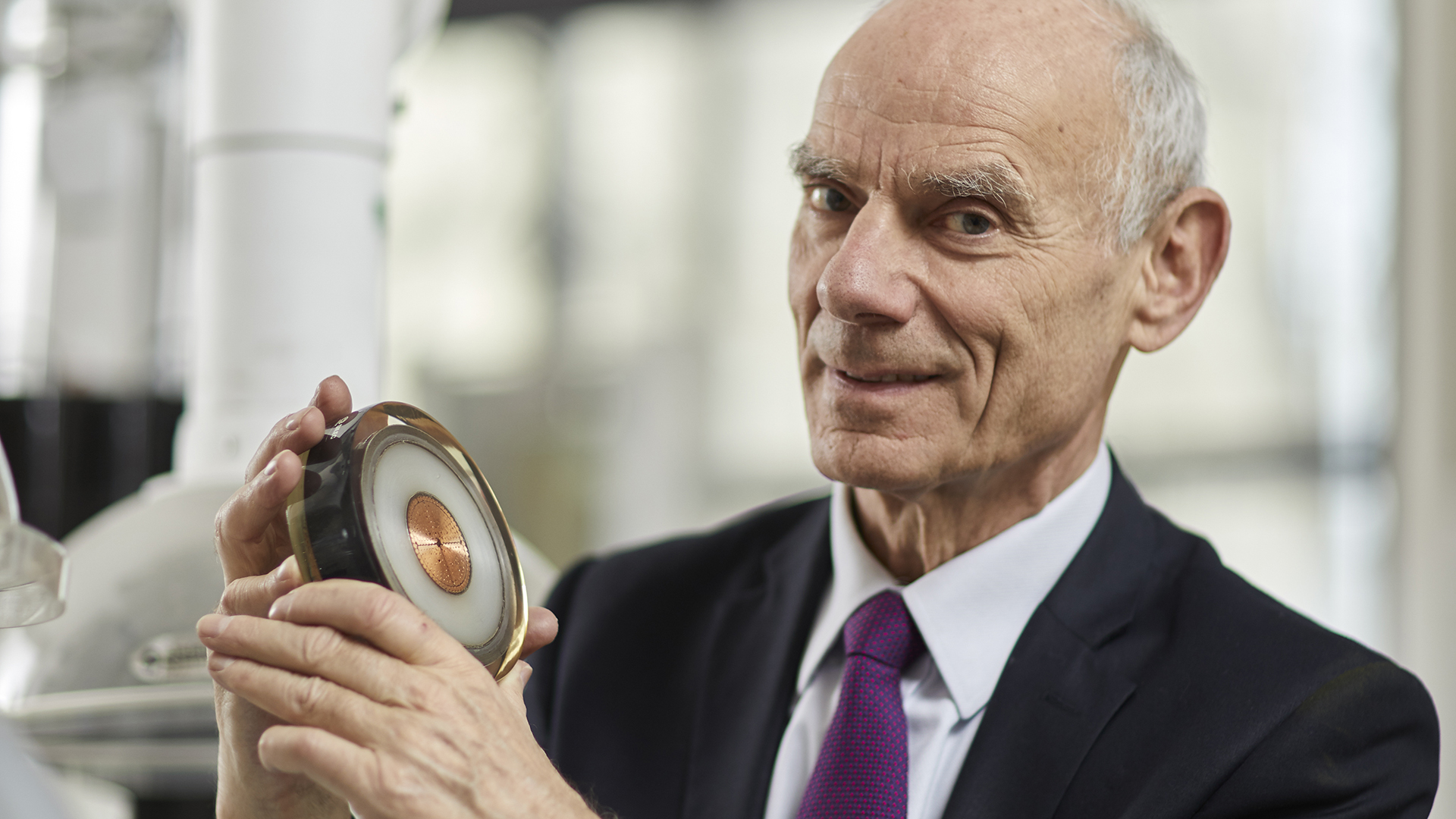Jacques Lewiner
Smoke alarm, internet connections, secure key cards and many more
Finalist for the European Inventor Award 2018
Few individuals are as prolific as French inventor, physicist and entrepreneur Jacques Lewiner. Throughout his career as a researcher spanning more than four decades, he has authored over 500 patent applications worldwide. He holds 68 granted European patents.
Only few inventors can match the scale of Lewiner's innovative output. Even fewer can match the diversity: with inventions in the fields of electronics, medical sensors, security and telecommunications, Lewiner also has a range of interests that is nearly as broad as his inventions are numerous.
The common denominator lies in transforming cutting-edge science and technology - often connecting several disparate fields - into practical solutions to everyday problems. A lifelong advocate of bridging the gap between science and industry, Lewiner also helps fellow researchers and students to transform their findings into real-world applications.
A strong proponent of the protection of intellectual property, the 74-year-old has managed to turn some of his patents into successful products. In 2000, he launched fire-detection specialist company Finsecur to market his novel smoke detector design, which has since grown into a EUR 34-million-per-year business.
Societal benefit
Lewiner's inventions have improved the safety of millions of people around the world. In 1977, he patented a bed sheet that triggers an alarm upon variations in vital functions like breathing or heartbeat. This bed sheet is ideal for monitoring sleep-apnoea patients or newborn babies and, unlike previous inventions such as patched sensors, allows for full freedom of movement.
Lewiner designed an algorithm-based coding system, one of the first technologies to make magnetic-key-card locks practical. The system was granted a European patent in 1989 and by Lewiner's own estimates has been used to secure hundreds of thousands of hotel rooms since.
In 1991, the serial inventor patented an improvement to the ionic smoke detector, making it less prone to false alarms - a common annoyance at the time, because a sudden gust of wind would trigger the alarm. The detectors have since been installed in homes across the world.
Economic benefit
Lewiner's ionic smoke detector became an intellectual-property cornerstone of the fire-detection specialist company Finsecur, which Lewiner co-founded in 1999. Since then, Finsecur has grown its patent portfolio to over 120 patents and is reported to have a turnover of EUR 34 million and employ some 168 people.
Many of Lewiner's projects involved collaboration across technical and scientific fields and several of Lewiner's start-ups were launched in co-operation with former students from the École Supérieure de Physique et de Chimie Industrielles de la Ville de Paris (ESPCI Paris). One of the more successful of these was Inventel, which he started with his former student Éric Carreel. The company was bought by the French communications and entertainment company Thomson (now Technicolor) for EUR 146 million in 2005.
A more recent star is Sculpteo, a company specialising in 3-D printing set up by Lewiner, Carreel and Clément Moreau. The latest reported figures, from 2017, state that it has 55 employees and has so far raised around EUR 9 million in investments. Sculpteo is active in a global 3-D printing market estimated to have been worth about EUR 5.3 billion in 2017 and expected to reach EUR 26.5 billion by 2023.
How it works
Lewiner's composite bed sheet for monitoring vital signs at night converts biological functions such as breathing or heartbeat into an electromechanical signal. Because breathing and heartbeat are cyclic, a change in this cycle will cause a change in the electromechanical cycle of the sheet, triggering an alarm.
His innovation for magnetic-card-activated locks was relatively simple yet highly effective. Normally, a coded lock uses just one code to provide access, but Lewiner devised a mathematical algorithm that uses two codes. When the first code is used, a second code is automatically generated. When the second code is used, it becomes the primary code and generates a new one, and so on.
Lewiner's improvement to fire alarms was equally simple and effective. In previous models, ionised air particles in a special chamber in the detector would form an electric current. When smoke particles obstructed the current, the alarm would sound. But a sudden draught or gust could displace the air particles, also triggering the alarm. Lewiner included an additional ionisation chamber in the detector to compensate for harmless air currents so that the alarm would not sound by accident.
The inventor
Jacques Lewiner was born in Vic-sur-Cère, France, in 1943. As a boy, he conducted various experiments in the family garden, in the process devising an alarm system so he would be alerted to would-be intruders.
After earning his PhD in physics from the University of Paris, he taught at The Catholic University of America, in Washington D.C., specialising in the study of the electrical properties of solid matter. He joined the French National Center for Scientific Research in Paris in 1968 and filed for his first patent in 1970.
In 1973, Lewiner was appointed as professor in charge of the electromagnetism chair at the prestigious ESPCI Paris, which he later co-directed with Nobel laureate Georges Charpak.
His honours include the Prix Spécial Marius Lavet (2017) and titles such as Doctor Honoris Causa at Technion - Israel Institute of Technology (2016) and Knight in the National Order of the Legion of Honour (2002). Retirement could not be further from his mind, as he is currently Honorary Scientific Director at ESPCI Paris as well as Dean of Innovation and Entrepreneurship at Université PSL.
Did you know?
"Serial inventors" such as Lewiner are rare, but a few European Inventor Award winners and finalists have matched his fevered productivity. Known as the "man with a thousand patents", German inventor Artur Fischer (2014; Lifetime achievement - winner) is most famous for inventing the expanding wall plug and Fischertechnik toy franchise.
In 2016, Dutch engineer Anton van Zanten won the award in the "Lifetime achievement" category for his anti-lock braking system, one of his 180 granted patents, 36 of them relating to automotive safety.
The list also includes Swiss inventor Elmar Mock (2017; Lifetime achievement - finalist) who invented ultrasound welding techniques used in Swatch watches and went on to found Creaholic, a successful inventions incubator.
Last but not least, French inventor Raoul Parienti (2009; Lifetime achievement - finalist): known for his "Top Braille" reading assistant, his numerous patents cover inventions including household devices, electronic payment systems and GPS solutions.
Media gallery
Contact
European Inventor Award and Young Inventors Prize queries:
european-inventor@epo.org Subscribe to the European Inventor Award newsletterMedia-related queries:
Contact our Press team#InventorAward #YoungInventors











